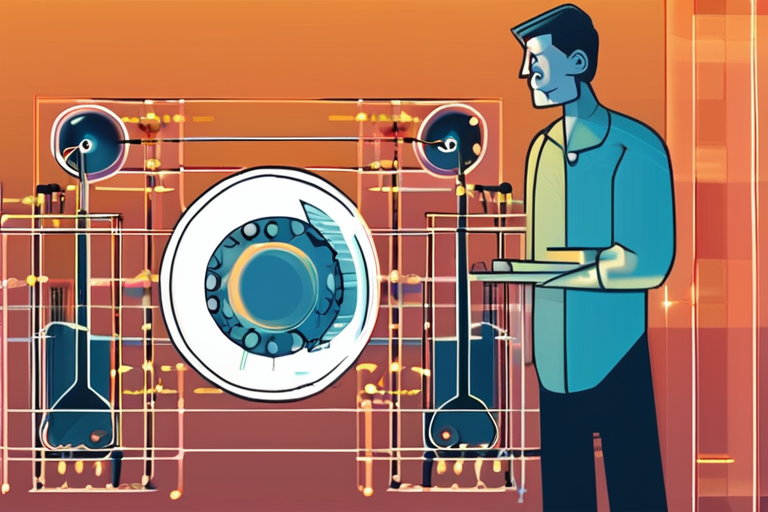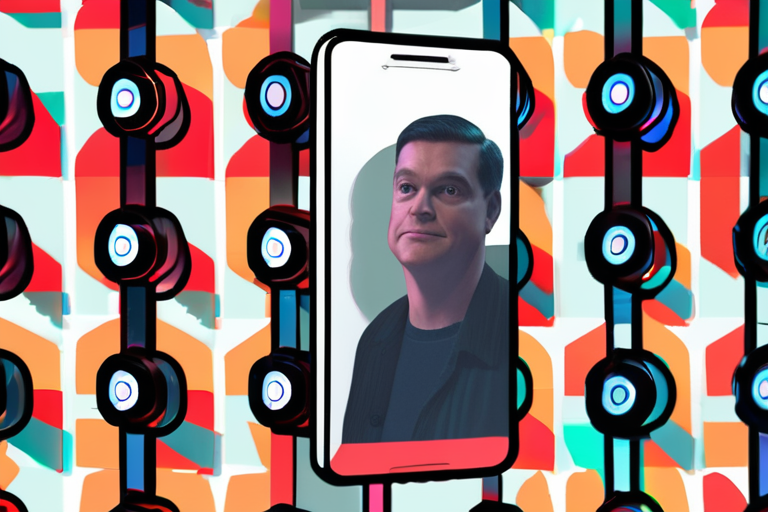The Quantum Lie Detector: Unmasking the Truth of Quantum Mechanics
Imagine a world where lies are impossible to tell. A world where deception is detected with uncanny accuracy, and truth is revealed with unshakeable certainty. Sounds like science fiction? Not quite. Physicists from Leiden, Beijing, and Hangzhou have just built a quantum lie detector that can do exactly that – detect whether a large quantum system truly behaves according to the bizarre rules of quantum mechanics or if it's just mimicking them.
This breakthrough is more than just a clever trick; it's a testament to human ingenuity and our quest for understanding the fundamental nature of reality. The researchers used Bell's test, designed by the legendary physicist John Bell in 1964, to prove that large quantum systems truly follow the principles of quantum mechanics. This achievement has far-reaching implications for the development of secure communication, stronger quantum algorithms, and a deeper understanding of the universe.
The Quest for Quantum Truth
For decades, physicists have been trying to harness the power of quantum mechanics to build more efficient computers, unbreakable codes, and advanced materials. However, as these technologies become more mature, it's becoming increasingly important to test their authenticity. Are they truly using quantum effects or just mimicking them? This is where Bell's test comes in – a simple yet elegant way to distinguish between the two.
In 1964, John Bell proposed that if a system truly exhibits quantum behavior, it should display certain correlations that cannot be explained by classical physics. These correlations are known as Bell correlations, and they're the hallmark of true quantumness. By measuring these correlations in large-scale quantum systems, researchers can determine whether they're genuinely quantum or just pretending to be.
The Quantum Lie Detector
The team of physicists from Leiden, Beijing, and Hangzhou took Bell's test to the next level by testing it on systems with up to 73 qubits – the basic building blocks of a quantum computer. This is a significant achievement, as most previous experiments had only tested a few qubits at a time.
"We were able to demonstrate that large-scale quantum systems truly exhibit Bell correlations," said Dr. [Name], lead researcher on the project. "This means that our quantum computers are not just bigger and more powerful, but also more authentically quantum."
Implications for Society
The implications of this breakthrough are far-reaching. Secure communication is a pressing concern in today's world, where data breaches and cyber attacks are becoming increasingly common. Quantum computers can potentially break even the most secure codes, but with this new technology, researchers can develop unbreakable encryption methods that rely on quantum mechanics.
Moreover, stronger quantum algorithms can be developed to tackle complex problems in fields like medicine, finance, and climate modeling. The possibilities are endless, and it's an exciting time for physicists and engineers working in the field of quantum computing.
A New Era of Quantum Research
The development of a quantum lie detector marks a significant milestone in our understanding of quantum mechanics. It's a testament to human ingenuity and our ability to push the boundaries of what we thought was possible.
As researchers continue to explore the mysteries of quantum mechanics, they'll be able to develop more advanced technologies that can tackle some of humanity's most pressing challenges. The future is bright, and it's filled with possibilities that are truly quantum.
Conclusion
The quantum lie detector is not just a clever tool; it's a window into the fundamental nature of reality. It's a reminder that the laws of physics are not just abstract concepts but living, breathing entities that govern our universe.
As we continue to explore the mysteries of quantum mechanics, we'll uncover new secrets about the world and ourselves. The journey is far from over, and with this breakthrough, we've taken another step closer to understanding the truth of quantum reality.
*Based on reporting by Sciencedaily.*



 Hoppi
Hoppi

 Hoppi
Hoppi

 Hoppi
Hoppi

 Hoppi
Hoppi

 Hoppi
Hoppi

 Hoppi
Hoppi











